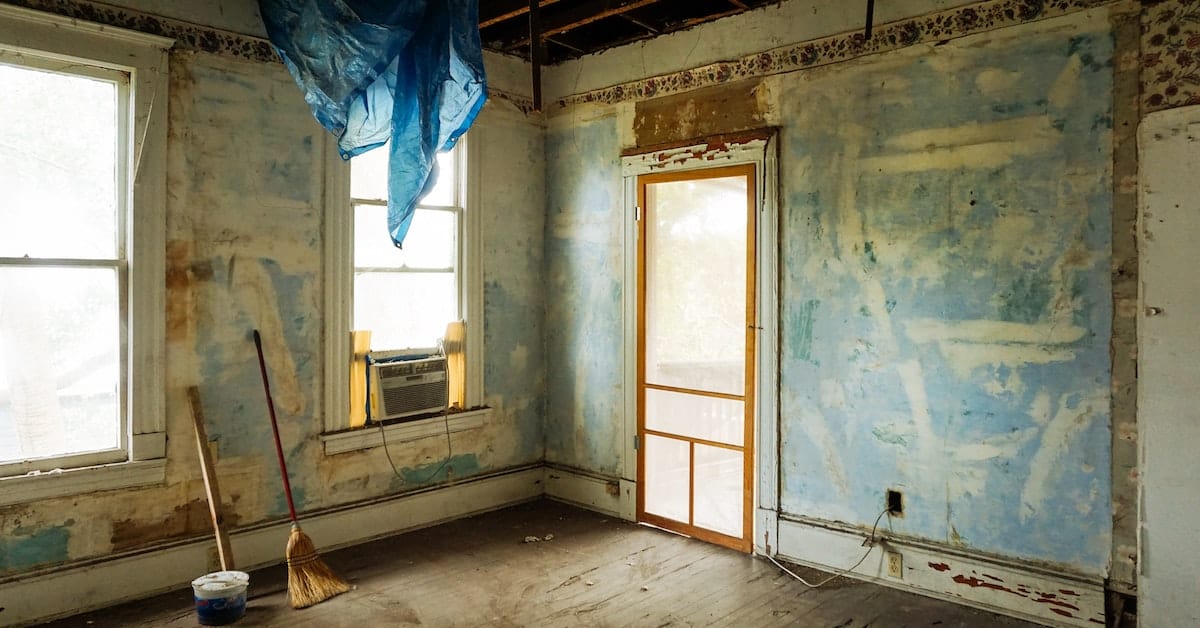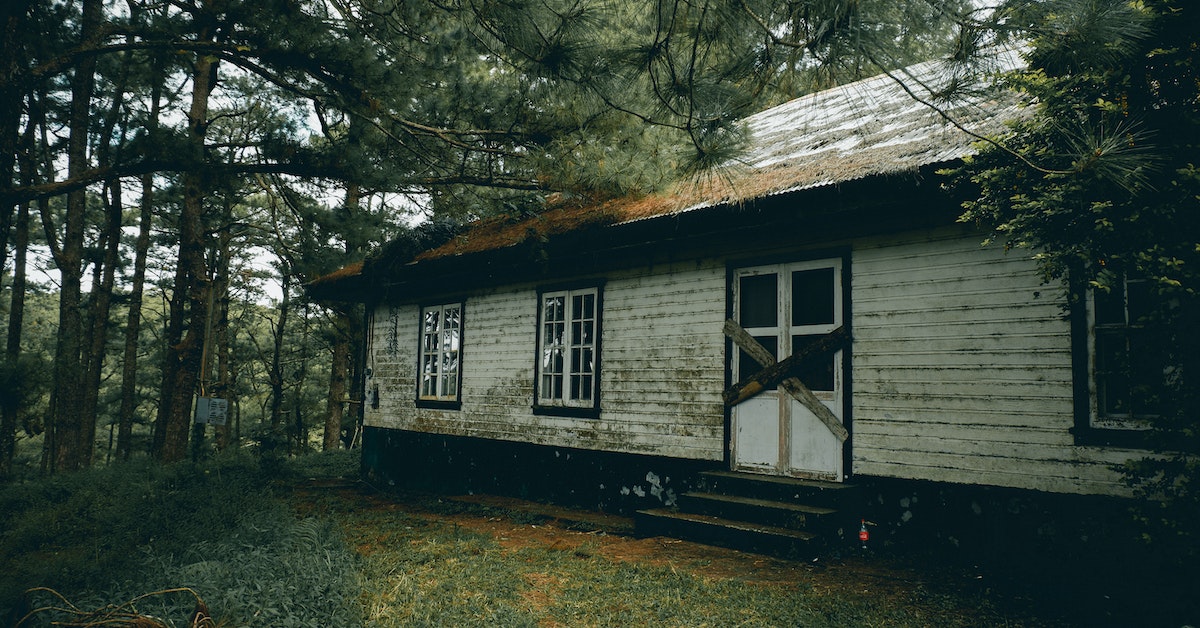It is a commonly held belief that you need to have a ton of cash to start investing in real estate. While it’s hard to get into the game empty-handed, you don’t need as much money as you might think. Are you wondering how to invest 20k in real estate to get your foot in the door?
If done well, you can take your $20k and use it to create cash flow and build wealth.
On the other hand, if you invest in real estate without doing any research you could find that your money would have been better off in a checking account.
Let’s take a look at how to get into real estate investing with as little as $20k.
If you have $20k saved up that you want to invest, you might believe that you don’t have enough capital to get into real estate. It is a commonly held belief that the safest option for saving money is putting your cash in a mutual fund or a CD.
However, there are a number of benefits that investing in real estate offers that you can’t get with one of these more traditional investment strategies.

Here are some of the advantages of real estate investing that you simply can’t get from stocks and bonds:
When you invest in real estate, you have the ability to make money in three separate ways. These are:
Any type of investing involves risk and investing in real estate is no exception. While many people have supplemented their income with real estate investing and others have become legitimately rich from the practice, others still have faced financial ruin because of bad or unlucky real estate decisions.

Here are some of the risks you will want to know about when investing in real estate, particularly if you are doing so for the first time with a bulk of your savings:
There are a lot of different ways to be a real estate investor-- you don't necessarily have to be a landlord with tenants. Oftentimes, though, the more directly hands-on your investment is, the greater your potential return for investment.
Let's take a quick look at three primary investment strategies in the world of real estate.
This more conservative strategy involves working to generate stable income with low risk. These investors use the strategy of buying high-quality properties in in-demand locations with the goal of signing on long-term tenants.
Associated with moderate-to-high risk, value-add is an investment strategy where a property that has little to no cash flow at the time of purchase can end up producing a lot of cash flow after the investor adds value.
It's common for this type of property to have deferred maintenance, management problems, occupancy issues, or all of the above. This isn't necessarily a great strategy for a beginner, as it's important to have a lot of knowledge about real estate and the market.
Considered to be the riskiest of all the real estate investment strategies, opportunistic investors take on projects that are more complex and might not see any ROI for several years. Usually, this type of investment involves an entire team of people. Examples include:
While this type of investment has the potential to produce a ton of cash flow down the road, they have little to no cash flow at acquisition.
Have 20k saved up and wondering how you can use it to start your real estate empire? Here are some ideas.
If you aren’t looking to become a landlord but you want to make money with real estate, fixing and flipping might be for you. The most ideal purchase for a fix and flip is a property that already has instant equity built in.

Since you aren’t planning on keeping the house as a long-term investment, you might be able to get a short-term, hard money loan for the property. You’ll want to only use some of your $20k toward the down payment because you’ll also need to cover closing costs and make minor repairs and updates.
It’s important to understand that fixing and flipping can be a risky game. If you aren’t able to accurately estimate the cost and scope of construction projects, if you’re off-base with your judgment of the property value, or if your local real estate market takes a dive, you could be in trouble.
Some of the mistakes that can end up being quite costly when fixing and flipping real estate include:
One creative option you have for investing 20k in real estate is seller financing. Basically, sellers that have a bunch of equity in a property might be willing to carry back the note for you. This can be beneficial to the seller if they aren’t interested in a 1031 exchange and also want to avoid paying capital gains tax.
If you go with a solution like this, it’s essential that you get everything in writing. You can also use an escrow company in order to keep track of the loan balance that you owe to the seller and your total payments.
As of the first quarter of 2022, the median home price in the U.S. is $428,700. As you might imagine, if you only have $20k to put towards a real estate purchase, there are a lot of homes in the U.S. that will be out of your price range.
This is particularly true if you are obtaining a loan for a property as an investment. When you’re purchasing a house as a primary residence, you can typically find a way to only put down 5%-10% on a house, meaning that your affordability range is pretty big. When you’re seeking a loan for an investment property, though, lenders usually require that you put down 20-25%.
Of course, on top of that, you’ll want to think about how much money you’ll need for closing costs, renovations, and other expenses.
Let’s say that you have $20k to put down toward a down payment and that you have additional funds set aside for closing costs and other costs. If you are required to put 25% down, this means that your budget max is $80k when it comes to the purchase price.
Obviously, this isn’t going to get you anything decent in VHCOL markets like NYC or San Francisco. However, there are still plenty of locations in the US where you can get a fixer-upper for under 100k.
Another creative way to buy a house when you don’t have a ton of money for a down payment is a rent-to-own agreement. You’ll also hear these called lease-purchase agreements.
This type of agreement involves renting a property with a contract that gives you the right to buy the house during a specific period of time for a predetermined price.
A portion of the rent you pay each month will be put away to go toward the down payment. How much of your rent goes toward the down payment is something you will want to have explicitly outlined in the lease.
When the time comes to purchase the place, your $20k in cash plus your accrued equity should be enough to help you get financing for the property.
As you might imagine, there are definitely some risks to this strategy. You’ll want to have an attorney take a look at your agreement before you sign on to it. On top of that, you should involve a neutral third party in order to accept, disburse, and keep track of rent payments, such as an escrow company.
Want to make money with real estate but don’t actually want to own a property? Real estate wholesaling might be for you.
Wholesalers work to find extremely motivated sellers and then get a purchase contract in place with a small earnest money deposit. Once the deal is accepted and the property is off the market, the wholesaler then searches for an investor that wants the contract. If you are successful in this endeavor, you’ll be able to turn a quick profit by collecting a wholesale fee.
Being a wholesaler helps avoid some risks because you don’t have to put any money or sweat equity into updating or repairing a place. However, the most obvious risk is that you won’t find a buyer to assign the contract to within the period of time before closing of escrow.
A relatively new way to invest in commercial real estate, real estate crowdfunding gives people without deep pockets the ability to invest in real estate. There are a bunch of different crowdfunding sites, some of which give normal, everyday investors access to the type of assets that are normally only owned by the wealthy.

This method is certainly risky, particularly with so much talk of a looming recession. Commercial and retail spaces often experience a decrease in demand during a recession because both consumers and companies typically cut back and spend less. However, it is considered a reasonable way to diversify your portfolio.
Online crowdfunding platforms pool money together from a ton of smaller investors in order to buy Class A, investment-grade commercial property. This might mean large apartment complexes, office buildings, or shopping centers.
Every quarter, investors receive distributions from large commercial property that would be difficult to buy as a new investor without much capital.
If some initial research has you worried that 20k isn’t going to be enough to buy the property you want, you might consider partnering with other investors. This way, you can turn several small amounts of money into a significant income-producing investment.
Of course, if you are only putting in a small portion of the dough compared to the other investors, you might be expected to take on an active management role to earn your keep.
These days, you can also buy shares in individual residential rentals. Online real estate crowdfunding platforms connect investors and developers. While this can be a good way to diversify your portfolio, get into real estate investing without much capital, and give you some geographic diversification, there are management fees to consider. On top of that, the assets tend to be illiquid with lockup periods.
Real estate investment trusts (REITs) are another good way to diversify an investment portfolio. A REIT is a company that operates or owns real estate that is income-producing. 90% of the taxable income of a REIT, by law, must be paid to shareholders in the form of a dividend.
There are also a number of popular real estate exchange-traded funds (ETFs), including:
Real estate ETFs can offer investors a number of different forms of diversification. The Vanguard Real Estate ETF, for example, held 168 real estate stocks in 2022.
If you have done your research and feel certain that you want to invest your $20k in real estate, you’ll want to learn some of the best ways to find affordable deals in real estate.
Most people will begin their search for a property by looking at houses that are currently for sale. If you’re looking for a bargain, you’ll want to focus on homes that have been sitting on the market for a long time.
When a house doesn’t sell right away, the sellers are much more likely to strike a deal. This might be particularly true if the buying season is almost over in your area and the sellers need to sell in order to move.
Look for indicators like recent price reductions and higher numbers of days on the market. If you see that a seller has lowered their asking price, it usually indicates that they haven’t received any offers and they have some leeway when it comes to the price.
In some cities, a list of vacant houses is published on the city website. These lists usually categorize the properties based on their condition and how long they’ve been vacant. Some of these homes might require that you bring the property up to full code compliance before a certificate of occupancy is issued, so you’ll want to do plenty of research if you go this route.
Some investors search for possible inherited homes by reading obituaries in the local newspaper. They then find the property of the deceased by searching property tax records.
Homes of this sort tend to be in better shape than homes that have been left vacant for a long time, though they might require some cosmetic updates. In some instances, you might find that the inheritors of the property are looking to offload the property for a fair price in a short amount of time.
Are you handy and interested in converting some of your sweat into equity? If so, you can look out for properties that are being sold “as is.” This phrase usually indicates that the home is in need of some repairs, renovations, and upgrades.
While this can be a great way to get a deal on a property, it’s also easy to get in over your head in this way. It’s important to have a thorough home inspection so you can get an idea of what type of work is needed. Fixing up a house is a big job, and it’s useful to have experience in this regard before jumping in head first.
If you are struggling to find affordable homes in your chosen location, start zooming out. However, a low property price isn’t the only thing that matters with real estate investing. If you find a location that has dirt-cheap real estate, you might also find that it is a location with low demand and low rental prices.
You also might be able to get a deal by searching FSBO listings. Sometimes, people that are selling their homes on their own have an inflated sense of how much their house is worth, though. In other cases, though, the savings that they are receiving by avoiding working with a real estate agent could mean you could save some money on the deal.
If you’re interested in making real estate investing a big part of your wealth-building strategy, you’ll want to work on building a network of local real estate professionals.
This way, you might be able to get word-of-mouth recommendations about properties before they are even listed on the market.
Some investors even choose to knock on doors in specific neighborhoods. You can identify homes that fit the criteria you’ve laid out and introduce yourself to the owners to see if they are thinking about moving in the next year or so. Even if they are planning on staying put, they might know someone else in the neighborhood that is going to be listing their home in the near future.
When a seller is on the path to foreclosure, they might choose to sell their home through a short sale in order to avoid the foreclosure process and its negative consequences. Sellers have to work with their lenders in order to sell their homes in this way because they are inherently selling them for less than they owe on the loan.
Short sales can certainly be a risky endeavor. This is particularly true if the bank initiated the sale of the house rather than the seller. In these cases, you are more likely to find a seller that refuses to move out and eventually has to be evicted– which is expensive and stressful.
Short sales also typically take a lot longer than a traditional real estate transaction. If you are eager to get into the property and start fixing it up, you might be disappointed by how long the short sale process drags on.
It’s typically a good idea to work with a real estate agent that is experienced with short sales if you plan on going this route.
When a homeowner fails to pay what they owe on their mortgage within a specific period of time or is unable to sell the home within a set time period, the lender will take possession of the property through foreclosure.
These properties are auctioned off to the highest bidder in a public auction. However, you need to be able to pay cash for these properties and have proof of funds.
Buying foreclosures can be very risky so it's important to familiarize yourself with what could potentially go wrong before heading off to an auction. You usually aren’t able to step inside the property before the beginning of the auction, so you are gambling to some extent when it comes to whether it's a good deal.
On top of that, homeowners will sometimes take everything of value out of the home when they leave, potentially even down to the copper pipes.
If you've decided that buying a foreclosed property is right for you, you can learn how to make an offer on a foreclosure here.
When you’re buying a house to live in, you can allow your emotions to contribute to your decision-making process. However, when you’re buying a property as an investment, whether or not the numbers add up is far more important than how you subjectively feel about the place.
Research is absolutely key when you’re choosing a rental. This is not a decision you want to make lightly, based on your gut, or based on the advice of someone you met at a bar.
Here are ten features you’ll want to consider when buying a rental:
Once you have a shortlist of potential rentals in your target area, run them through our rental property calculators to help you choose the property that is best suited to help you meet your financial goals.
We encourage you to share this article on Twitter and Facebook. Just click those two links - you'll see why.
It's important to share the news to spread the truth. Most people won't.